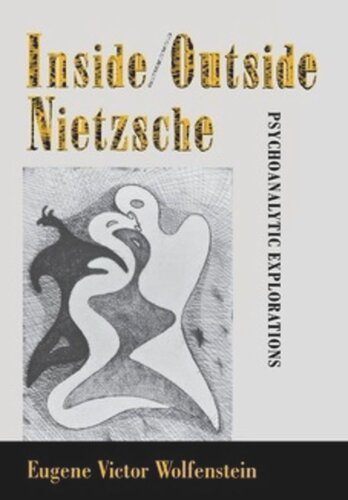

Most ebook files are in PDF format, so you can easily read them using various software such as Foxit Reader or directly on the Google Chrome browser.
Some ebook files are released by publishers in other formats such as .awz, .mobi, .epub, .fb2, etc. You may need to install specific software to read these formats on mobile/PC, such as Calibre.
Please read the tutorial at this link: https://ebookbell.com/faq
We offer FREE conversion to the popular formats you request; however, this may take some time. Therefore, right after payment, please email us, and we will try to provide the service as quickly as possible.
For some exceptional file formats or broken links (if any), please refrain from opening any disputes. Instead, email us first, and we will try to assist within a maximum of 6 hours.
EbookBell Team

0.0
0 reviewsFriedrich Nietzsche is both subject and interlocutor in this innovative study. The book mirrors the psychoanalytic situation, mediating between the philosophical world that Nietzsche created for himself and the external world challenged by his philosophy.Eugene Victor Wolfenstein, a distinguished social theorist and practicing psychoanalyst, focuses on the opposition between the principles of psychoanalytic theory and Nietzsche's concepts of the will to power and perspectivism. Through critical engagement with these Nietzschean concepts, Wolfenstein brings them into the purview of psychoanalytic theory and practice.Using this revised version of psychoanalytic theory, Wolfenstein then conducts a psychobiography of Nietzsche's life. He contends that Nietzsche philosophized from within a transitional space between the maternal and paternal extremes of the male imaginary, a space in which gender identity is notably unstable, and sublimity consorts with the most abject misery. This psychic location is the impetus for Nietzsche's conceptions of eternal return and the feminine.Finally, Wolfenstein explores Nietzsche's genealogy of morals from a psychoanalytic perspective and in the light of Nietzsche's psychobiography. He concludes that Nietzsche's revaluation of values leaves us painfully short on both love and compassion. The whole book is also framed by a critical engagement with Michel Foucault's problematics of power/knowledge.